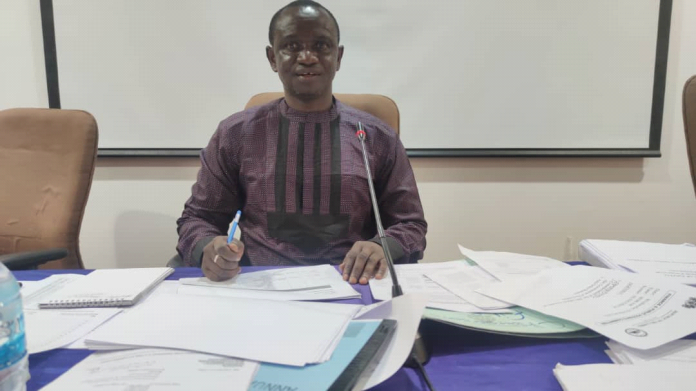By: Kebba AF Touray
The Finance and Public Accounts Committee of the National Assembly (FPAC), has tasked the Judicial Secretary of the Judicial arm of the government to adhere to the standards of scrutiny, which is applied to all public institutions in appearing before the FPAC for lawful legislative scrutiny.
The FPAC made this call on Monday, 22nd April 2024, in its position on the Judicial Secretary’s press release issued on Friday 19th April 2024, and addressed to the committee, relating to the failure of the Judiciary to appear before the committee for scrutiny of their financial reports.
The committee said that while the National Assembly and its oversight Committees hold the Judiciary in the highest regard as a beacon of hope in our democratic dispensation, FPAC indicated “It is imperative that the Judicial Secretary, as the custodian of financial accountability within the Judicature, adhere to the same standards of scrutiny applied to all public institutions”.
According to FPAC, its attention has been drawn to a Press Release dated 19th April 2024, signed by the Judicial Secretary of the Judicial Service Commission, concerning his and the Judicature’s failure to appear before the FPAC for lawful parliamentary scrutiny as mandated by law.
“The FPAC wishes to clarify that the Judicature, like any other public institution, was summoned through a letter dated 8th April 2024, with Ref. No. ME 28/91/02/X (150), and addressed to the Judicial Secretary, along with the Meeting Schedule of the FPAC for April and May 2024”, said FPAC.
The committee went on to state that through this letter, the Judicature was scheduled to appear on Thursday, 18th April 2024 to submit and present its annual Activity Reports and audited Financial Statements, and not on 24th April 2024 as alleged by the Judicial Secretary in his press release.
The letter, FPAC said reminded, all recipients, including the Judicial Secretary, that “Engagements with Committees of the National Assembly take precedence over all other matters” and that “Institutions that have not already submitted their Activity Reports, Financial Statements/Management Letters, Strategic Plan and Budgets are requested to do so before the scheduled date of their meetings”.
It added that all recipients complied or provided reasonable excuses for rescheduling, but that neither the Judicature nor the Judicial Secretary reported as scheduled, nor did they notify the FPAC about their inability to attend the meeting. Consequently, the Presentation and Consideration of the annual Activity Reports and audited Financial Statements of the Judiciary could not proceed due to their absence.
“The Judicial Secretary must be reminded that the Judicature, like the National Assembly, is an independent institution mandated to be self-accounting. Moneys allocated to the Judicature by the Consolidated Fund or appropriated by an Act of the National Assembly shall be managed by the accounting officer, who in this case is the Judicial Secretary,” said FPAC.
FPAC indicated that the responsibilities include preparing annual accounts of the Judiciary (contrary to five-year accounts claimed) for submission to the Auditor General for audit, as well as submitting those annual audited accounts to the FPAC for scrutiny, as is the case with all other independent institutions of the State, including the National Assembly Service.
The committee reminded the public, including the Judicial Secretary, that FPAC will continue to carry out its legitimate parliamentary oversight mandate in accordance with the Constitution and other laws of The Gambia, which is to ensure that all public institutions, including the Judicature, are accountable and subject to lawful parliamentary scrutiny of public funds entrusted to them.
The committee reiterated its commitment to upholding the principles of accountability and transparency in governance, as enshrined in the Constitution and other laws of The Gambia.
FPAC said “This mutual respect ensures the effective functioning of our democratic institutions and strengthens public trust in the governance process”.




















